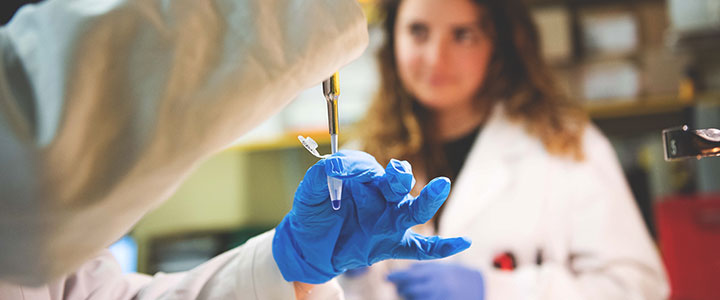The Applied Biotehnology curriculum provides a preparation aimed at developing a deep knowledge of the theory and fundamentals of biotechnology and developing the necessary skills to perform different roles in the laboratories of public research institutions or private laboratories engaged in research or development of biotechnological products.
The course aims to prepare graduates as specialists in industrial biotechnology, equipped with interdisciplinary knowledge for responsible roles in the workforce.
Graduates will master the experimental scientific method for biological systems and possess deep knowledge of molecular and cellular biology, applying it to biotechnological processes.
Students who chose the curriculum in applied biotechnology will have a solid understanding of biological macromolecules and cellular processes, be skilled in traditional and biotechnological analytical tools and techniques, and master bioinformatics methodologies.
Additionally, students will understand the production and purification of small molecules, proteins, and other macromolecules via biotechnological processes. Graduates will also be knowledgeable about complex biological systems and able to develop models for related phenomena.
Furthermore, the curriculum in applied biotechnology will teach students to design, manage, and improve biotechnological industrial processes for producing bio-based products, and understand the operational processes following the industrial production of biotechnological products.
Notably, data from Almalaurea over the past four years shows that 100% of our Biotechnology graduates report being engaged in paid employment or training activities three years after graduation.

